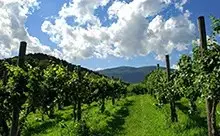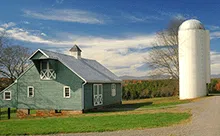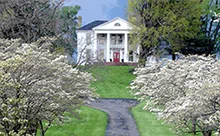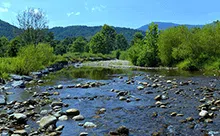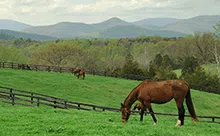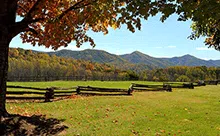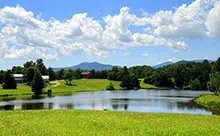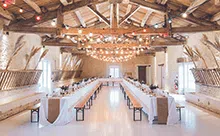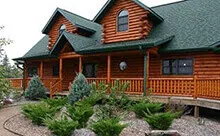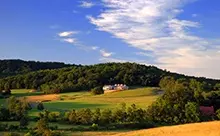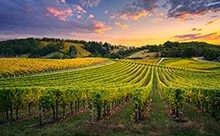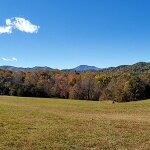
What Would You Do With Your Land?
What Would You Do With Your Land?
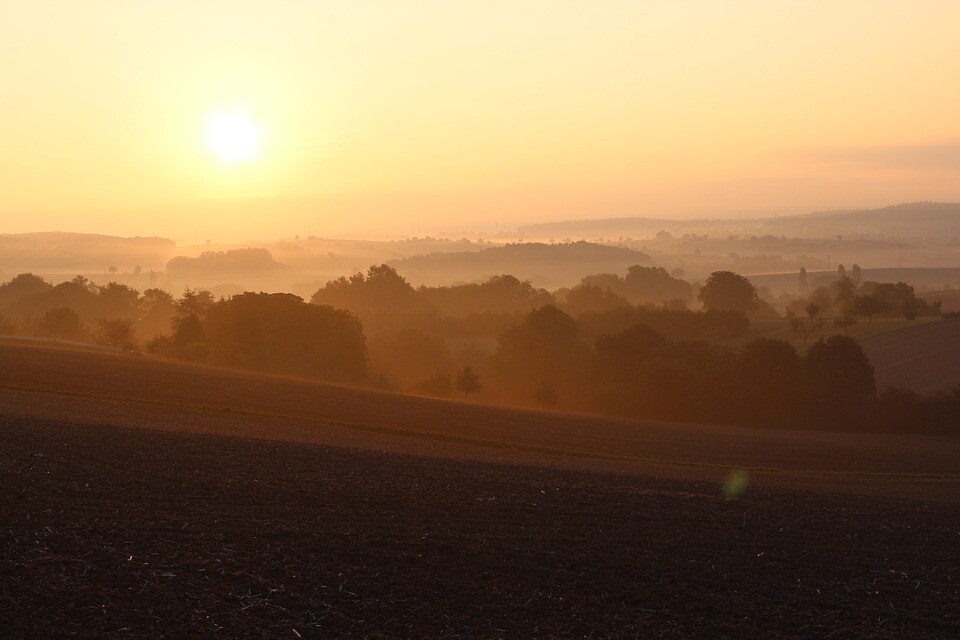
What would you do with the large parcel of land you desire to purchase, that’s just too good of a deal to pass up? There are several of those properties right here in Virginia! Acres of prime forestland, first rate farms, and open spaces with unlimited options are all available in Central Virginia, the foothills of the Piedmont, and in or around the Blue Ridge Mountains. If you’re looking for a secluded location with easy access to cities such as Charlottesville, Culpeper, Harrisonburg, Lynchburg, Staunton, Waynesboro, or even a commute to Richmond, Roanoke, or Washington, D.C., you’ll find something that catches your eye. Large tracts of land are great for personal use and business and investment opportunities. Any single one, or possibly several of the following examples may be the exact venture you’re interested in.
Do you want to reserve your land for yourself, family and friends, or are you open to having partners and customers coming and going? Are you an animal lover, have a green thumb, a homebody, an outdoors enthusiast, or a people person? These are two of the first questions you should ask yourself before beginning your research into prospects that will suit your desires or needs. For introverts and extroverts alike, there’s plenty of options.
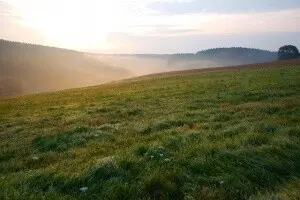 If you’re looking for a farm and pastureland with soft rolling hills interspersed with open fields and wooded stands, Albemarle, Amherst, Augusta, Buckingham, Culpeper, Greene, Louisa, Madison, Nelson, and Orange counties are all great places to start your search. If a working farm already exists and you wish to continue its operation, that makes for a cost-effective purchase since the footprint is already established and some, if not all, of the necessary infrastructure is most likely in place. If you’re not interested in operating the farm yourself, leasing the land to other farmers for growing crops or pasturing livestock can sometimes be very lucrative. Due to Central Virginia’s climate and soil, corn, hay, soybeans, and wheat are grown extensively. Greenhouses and nurseries are also on the rise in the state, comprising almost 10% of Virginia’s total agriculture. CSA farms, or Community Supported Agriculture, are rapidly expanding. People enjoy knowing exactly where their produce is coming from, how it’s being grown, and having the ability to drive directly to the source and even pick their own portion of their share.
If you’re looking for a farm and pastureland with soft rolling hills interspersed with open fields and wooded stands, Albemarle, Amherst, Augusta, Buckingham, Culpeper, Greene, Louisa, Madison, Nelson, and Orange counties are all great places to start your search. If a working farm already exists and you wish to continue its operation, that makes for a cost-effective purchase since the footprint is already established and some, if not all, of the necessary infrastructure is most likely in place. If you’re not interested in operating the farm yourself, leasing the land to other farmers for growing crops or pasturing livestock can sometimes be very lucrative. Due to Central Virginia’s climate and soil, corn, hay, soybeans, and wheat are grown extensively. Greenhouses and nurseries are also on the rise in the state, comprising almost 10% of Virginia’s total agriculture. CSA farms, or Community Supported Agriculture, are rapidly expanding. People enjoy knowing exactly where their produce is coming from, how it’s being grown, and having the ability to drive directly to the source and even pick their own portion of their share.
Independent commercial farms geared toward seasonal family activities can be very successful. Pick your own strawberries in the spring, sunflowers in the summer, and pumpkins in the fall will draw in a steady stream revenue for over half of the year. Additional services and events such as hay rides, fairs, food and music festivals, living nativity scenes around Christmas, and tractor pulls are other popular experiences that will bring people of all age groups near and far. Music festivals in remote settings can often attract crowds larger than what a traditional music venue could hold. The annual weekend-long Blue Ridge Music Festival near Lynchburg, Virginia is a prime example.
Depending on the size of the property, available finances, and knowledge of the matter, you may want to consider building a craft brewery, cidery, distillery, or vineyard and winery. In Central Virginia and in the Blue Ridge portions of the state, all of these ventures have exploded in the past decade or so. There are multiple beer and wine trails, transportation services that cater exclusively to carrying small and large groups to these destinations, and county tourism departments have lured in vacationers with the sole purpose of sampling what the establishments have to offer. Nelson 151 is one of the more well known and most frequented areas. On the weekends and holidays, live music and food trucks bring even more people. Farm to table and local food and ingredient sourcing is also big business, and if you’re entrepreneurial enough, you could plant and harvest your own apples, barely corn, grapes, rye, or wheat for whatever beverage or spirit you’re making. However, while Virginia is within the lower limits of the hop growing zone, very little are grown in the state.
Speaking of vacations, have you ever taken one to a farm? Believe it or not, that’s a real thing. City dwellers who loathe the clean air, open land, views, and simple ability to get dirt on their hands and interact with animals will pay to “work” on the farm. In a bed and breakfast type setting, guests come to the farm for up to a week and learn how to tend to the land and the animals. Adult couples and families alike, especially those with young kids, thoroughly enjoy a hands-on understanding and working knowledge of how raw food originates. Feeding the animals, horseback rides, and tractor rides are always the highlights.
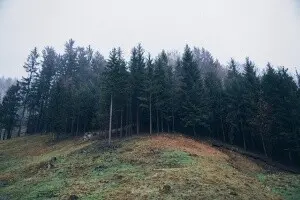 Big barn venues are popular for large weddings and even corporate parties. Other than a relaxing, let your guard down atmosphere, it’s a perfect setting for photography where seasonal crops, fruits, vegetables can be rotated for props. Rolling fields of golden wheat blowing in the wind, tall green corn stretching into bright blue sky, or fields of blooming wildflowers offer a wide array of backgrounds that photographers and their subjects subconsciously gravitate towards. Don’t forget to polish the tractor- a country themed wedding isn’t proper without the proverbial bride sitting atop the tractor picture.
Big barn venues are popular for large weddings and even corporate parties. Other than a relaxing, let your guard down atmosphere, it’s a perfect setting for photography where seasonal crops, fruits, vegetables can be rotated for props. Rolling fields of golden wheat blowing in the wind, tall green corn stretching into bright blue sky, or fields of blooming wildflowers offer a wide array of backgrounds that photographers and their subjects subconsciously gravitate towards. Don’t forget to polish the tractor- a country themed wedding isn’t proper without the proverbial bride sitting atop the tractor picture.
Are you an animal lover? Do you ever dream you could take in or rehabilitate abandoned creatures big and small, domestic and wild? Your wish could come true if you turn your farm or property into an animal rescue sanctuary. The satisfaction that comes from adopting an emotionally or physically harmed animal, holding on to it for safekeeping for the entirety of its life, or rescuing it to rehabilitate and release, is truly heartwarming and unparalleled.
Maybe you’re not quite the farm type, but more of a mountain man, or woman. There is an almost unending list of possibilities to turn a mountain property or tract into a business opportunity, an exciting recreation area, or a quiet, private, isolated reprieve from the rest of the world. If you’re looking to do all three, that’s manageable as well.
If you’re not ready to build on your vacant property, one revenue option that’s often overlooked is the timber on the land. In some cases, the value of the timber can even exceed the purchase cost of the property. You heard that correctly. You can cover all of your associated costs and have money left over. Even if you’re looking to build or develop, it’s almost always worthwhile to see what your timber is worth. Why pay someone to clear your land when you can be paid to have it cleared?
Another way to earn revenue on your property, depending on its location and regulations governing it, is to lease the land to hunters and fisherman. If wild game is abundant or you have water frontage such as a lake or a healthy trout stream or river, people will pay top dollar for a private hunting and fishing reserve. You will have the ability to extensively dictate the terms of the contract. If you’re willing to allow overnight camping or the building of a rudimentary cabin and unlimited access for the paying party, the higher the value will be to those looking.
Business opportunities include camping or church retreats, building a gun club and outdoor range or an obstacle and ropes course, or maybe vacation cabins. Rustic, fancy treehouses the size of full bedrooms are increasingly becoming popular for couples getaways. Some are even outfitted with electricity. Have you heard of glamping- camping with a little less roughing it and more glamour? Treehouses or yurts fit the bill. Gun clubs and ranges, on the other hand, do not need to be fancy. Basic amenities such as four walls, a roof, electricity and running water, and handgun, rifle, and shotgun lanes can bring in membership fees exceeding $500/year per person. Without too much up front cost, you can clear areas and build bathroom facilities and platforms for stationary tents for groups to rent for company team building exercises, or you could go the opposite direction by keeping it primitive for use by outdoor or survival enthusiasts. With proper equipment, ATV (All Terrain Vehicle) trails aren’t difficult to build or maintain. Mudding is also considered a proper sport for many off-road truck and Jeep enthusiasts. How about a paintball course? Wooded land with varying terrain is a dream for hardcore participants.
Some of my most vivid memories as a child took place on Mooremont Mountain in Orange County. Mooremont was an orchard owned by Mr. Moore, who my grandpa went to school with. The paved road turned to gravel as you neared the top, where in the shade of several tall oak trees there was a jungle gym, seesaw, swing set, and merry-go-round I nearly fell off dozens of times, too dizzy to hang on any longer. On a clear day, with a pair of binoculars you could see the Washington Monument.
The large wooden structure below the playground housed the store and offices where you could purchase pre-picked fruit by the bag and bushel, or drive down the dirt and grass trails to pick your own. It was more reminiscent of an old lumber mill you would have seen in the late nineteenth or early twentieth century. The dusty floorboards always creaked and Mr. Moore could always be found sitting somewhere on the porch with dark brown pipe hanging off his bottom lip. My grandpa was a retired plumber by trade and performed a fair amount of plumbing jobs at the orchard, and in return Mr. Moore gave my grandpa free reign to pick whatever he wanted. As a nimble kid who enjoyed climbing trees, I was always brought along. We loaded bags with apples, cherries, peaches, pears, and plums which were baked into breads, cobblers, and pies. My favorite was my grandma’s fried apples over fresh biscuits. After I became an adult, Mooremont was purchased and the buyers tore out the orchard and turned the mountainside into a pasture for raising cattle. I was crushed as it held so many memories and I knew the years of dedicated work it took to bring an orchard into a profitable business. Maybe you have that kind of dedication.
 Are you a hiker? Do you enjoy conversing, interacting, and helping others? If so, operating a hostel might be right up your alley. The Appalachian Trail runs for roughly 400 miles through the mountains and valleys of Virginia, more than any other state as it meanders it’s way from Georgia to Maine. Hostels provide basic, but needed services for thru and section hikers alike. Most hostels contain a large room or multiple smaller rooms with bunk beds, shower facilities, a small kitchen to cook meals, and an area to relax and recoup energy to continue their journey.
Are you a hiker? Do you enjoy conversing, interacting, and helping others? If so, operating a hostel might be right up your alley. The Appalachian Trail runs for roughly 400 miles through the mountains and valleys of Virginia, more than any other state as it meanders it’s way from Georgia to Maine. Hostels provide basic, but needed services for thru and section hikers alike. Most hostels contain a large room or multiple smaller rooms with bunk beds, shower facilities, a small kitchen to cook meals, and an area to relax and recoup energy to continue their journey.
If you enjoy wildlife, why not turn your land into a nature preserve and/or apply for a conservation easement? If you’re willing to allow public access to your land, there are volunteer organizations that will help you map out, build, and clear trails for others to enjoy nature as well.
Finally, maybe you’re just after a remote mountain retirement or recreation location for your family and close friends. If that’s the case, a nostalgic quintessential cabin will make you feel right at home in the woods. It doesn’t have to be fancy, but certainly can be if you don’t want to rough it at all. Picture this: A small cabin tucked into the woods with a few bedrooms, bathroom, common area, kitchen, and wraparound porch beside a river where you could sit in a rocking chair or swing and listen to the gentle water falling over the rocks. A hammock is tied between two trees where you could lay and read and there are benches fashioned in a circle around an open fire pit. Perhaps it’s summer and you’ve got fresh bass and bluegill you caught earlier in the day on a griddle over the flames. Or maybe it’s fall and you wrapped a rack of deer ribs in foil with nothing but a can of beer poured over it and a little salt and pepper. If that doesn’t sound like a slice of solace, I don’t know what does.
Wow! This list shouldn’t be considered comprehensive, but it’s a great jumping point to get you interested and motivated if you’re considering buying a large tract of land or property and are looking for ideas of what to do with your purchase. Farms are good and mountains are great (better in my opinion, but I’m biased), so investigate what’s you’re interested in and make a move, because what-ifs will always leave you wondering what could have been!


















